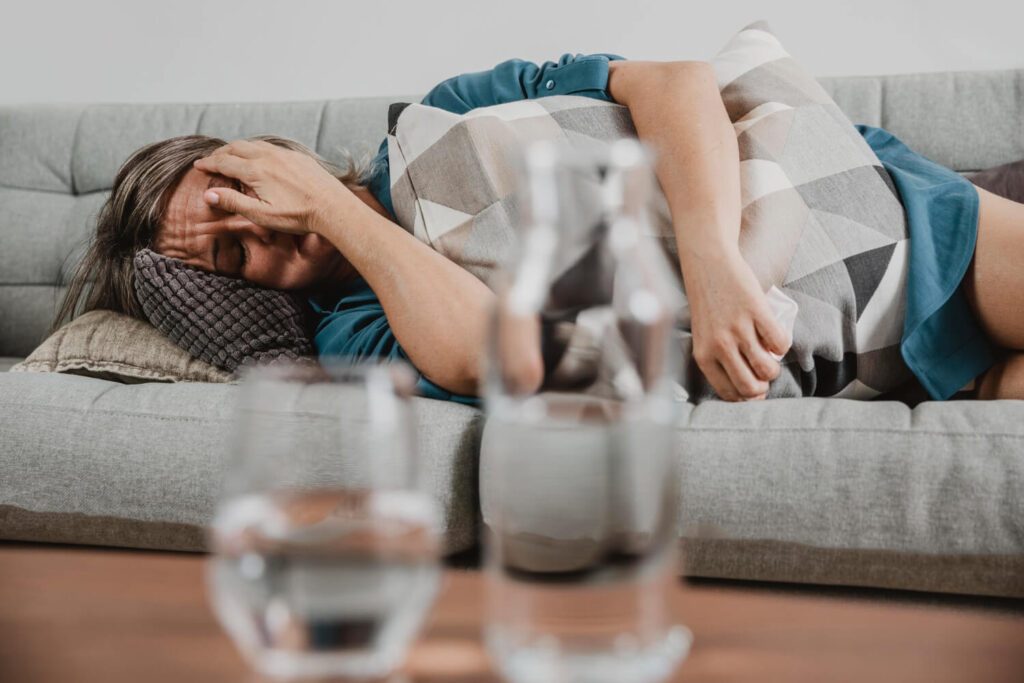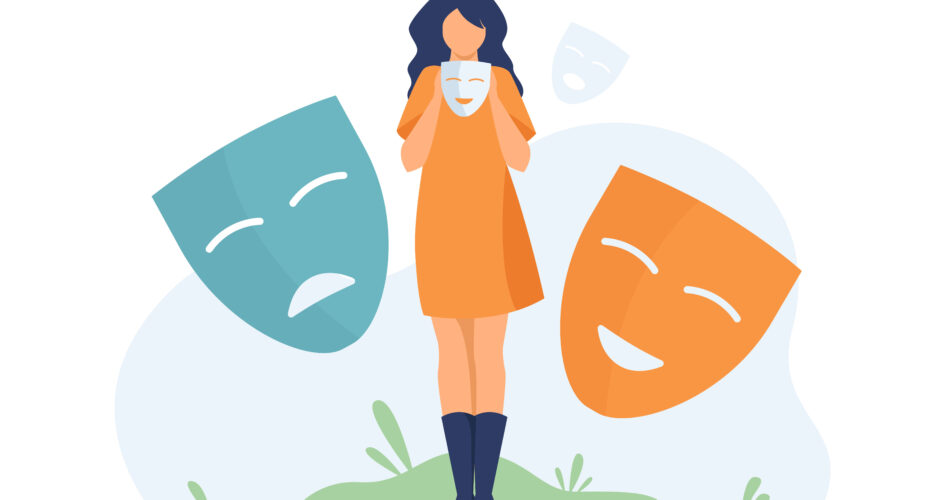Claiming the phrase ‘I am depressed’ is more complicated than most people might think. Given the stigma surrounding mental health, it’s no wonder why people tend to disregard their uncertain and growing emotions. Unfortunately, with the prevalence of this mindset, the more individuals feel the unbearable loneliness, which can turn into suicidal thoughts.
It’s time to change that through one of the most effective ways, encouragement to seek help. In this blog, we’ll help individuals navigate the path towards disease control, which can be achieved by normalizing the management of mental health. Let’s understand the concept of depression below!
Defining Depression: More Than Just Sadness

Depression is a mental health condition that goes beyond the normal feelings of sadness or grief that everyone experiences from time to time. It is characterized by persistent feelings of hopelessness, emptiness, and a lack of interest or pleasure in activities that were once enjoyable.
While it is normal to feel down or have low moods, depression is a more severe and long-lasting condition that can significantly impact a person’s daily life. It is important to note that depression is not a sign of weakness or a character flaw. It is a medical condition that can be treated and managed with the right support and interventions. If you suspect that you or someone you know may be experiencing depression, it is important to seek help from a mental health professional who can provide a proper diagnosis and develop a treatment plan tailored to the individual’s needs.
The Many Faces of Depression: Types
Depression comes in many different forms, each with its own unique set of symptoms and challenges.
- Major Depressive Disorder
- Clinical Depression
- Postpartum Depression
- Seasonal Affective Disorder
- Persistent Depressive Disorder
It is important to recognize that depression is a complex and multifaceted condition. Each person’s experience with depression may be different, and treatment should be tailored to individual needs. If you or someone you know is experiencing symptoms of depression, it is important to seek help from a mental health professional who can provide an accurate diagnosis and develop an appropriate treatment plan.
Recognizing the Signs: When to Say I Am Depressed

Recognizing the signs of depression and knowing when to say “I am depressed” is an important step in seeking help and support. It is important to reach out to a mental health professional who can provide a proper diagnosis and develop a treatment plan tailored to your needs.
Common Depression Symptoms and Warning Signs
- Persistent feelings of sadness, emptiness, or deep despair
- Loss of interest or pleasure in activities that were once enjoyable
- Changes in appetite or weight, either significant weight loss or weight gain
- Fatigue or loss of energy, even with adequate rest
- Difficulty concentrating, making decisions, or remembering information
- Feelings of worthlessness or excessive guilt
- Irritability, restlessness, or agitation
- Thoughts of suicide
These symptoms may vary from person to person and can range in severity. It is important to note that experiencing one or a few of these symptoms does not necessarily mean that a person has depression. However, if these symptoms persist for an extended period of time and interfere with daily functioning, it may be a sign of depression and should be evaluated by a mental health professional.
Physical Symptoms of Depression
Depression can affect not only a person’s mental health but also their physical well-being. Some common physical symptoms of depression include:
- Chronic fatigue or a constant feeling of tiredness, even with adequate rest
- Headaches or migraines
- Body aches and pains
- Digestive issues, such as stomachaches or changes in appetite
- Sleep disturbances, such as insomnia or oversleeping
- Weight loss or weight gain
- Physical tension or restlessness
- Increased susceptibility to illness or infections
- Changes in sexual desire or function
These physical symptoms can vary from person to person and may be influenced by factors such as age, gender, and overall physical health. It is important to address both the mental and physical aspects of depression when seeking treatment and support. Consulting with a healthcare provider or mental health professional can help develop a comprehensive treatment plan that addresses all aspects of a person’s well-being.
The First Steps to Seeking Help

Taking the first steps to seek help for depression can be challenging, but it is an important step towards finding support and managing the condition. Here are some initial steps to consider:
- Acknowledge your feelings: One of the first steps towards healing is knowing when to say I am depressed or recognizing you have depression. It can be challenging at times to acknowledge something that is very new to you, but doing so will begin the journey towards mental healing.
- Reach out to a mental health professional: Schedule an appointment with a mental health professional who can provide an accurate diagnosis and develop a treatment plan tailored to your needs.
- Build a support system: Connect with trusted friends, family members, or support groups who can offer understanding and support during your journey.
Remember, you are not alone, and there is help available. Depression is a treatable condition, and with the right support and interventions, you can start to feel better and regain control of your life.
Seeking Help from A Psychiatrist
When facing depression, it may be beneficial to seek help from a psychiatrist. Psychiatrists are medical doctors who specialize in diagnosing and treating mental health conditions. Here are some reasons why you may want to consider seeing a psychiatrist:
- Expertise in mental health: Psychiatrists have advanced training and experience in diagnosing and treating mental health conditions, including depression. They can provide a comprehensive evaluation and develop a personalized treatment plan.
- Medication management: If medication is recommended as part of your treatment plan, a psychiatrist can prescribe and monitor the effectiveness of the medication. They can also adjust the dosage or switch medications if needed.
- Holistic approach: Psychiatrists take a holistic approach to mental health care, considering both biological and psychosocial factors that may contribute to your depression. They may recommend a combination of medication, therapy, and lifestyle changes for optimal treatment outcomes.
Remember, seeking help from a psychiatrist is a positive step towards managing your depression. They can provide the expertise and support needed to improve your mental health and overall well-being.
Different Ways to Seek Help
There are different ways to seek help for depression depending on your needs and preferences. Here are some options to consider:
Health Hotline

Mental health hotlines are an invaluable resource for individuals experiencing depression or in crisis. It allows patients to have an available option and access to healthcare services in time of need. With its available nature of 24/7 service, patients suffering from depression can have a reliable guide whenever their mood changes and led to negative thoughts like self harm and constant suicide feelings.
Moreover, individuals don’t need to worry as the representatives in this hotline are known in the field of mental health medicine. They have the expertise to provide knowledge to every caller, such as giving referrals to therapists, support groups, and treatment facilities.
In terms of health hotlines, there are mental health representatives that bring more awareness to people. For instance, the Mental Health PH organization that was established during the pandemic has provided help to many people. Their programs like #UsapTayo, #40SecondsOfHope, and more are just some of the notable campaigns to help mental health patients towards mental healing.
There’s no need to fear when admitting I am depressed. Call the emergency hotline provided by the National Center for Mental Health (NCMH) 0917-899-8727.
Online Consultation
Aside from a crisis hotline, individuals suffering from this condition can also utilize the online platforms to talk and consult with a psychiatrist. There are several online consultation platforms in the Philippines, and you can find the psychiatrist near you by checking their list of doctors.
Utilizing such platforms can be helpful as the patient can have more privacy as they can attend the consultation at their safe space. Furthermore, it is more convenient as the platform already shows a pool of available mental health professionals, including their available schedule. Thus, letting you easily schedule a session that is beneficial for you.
Lastly, patients are not limited to seeing a locally known expert as the platform provides a nationwide roster of health experts that can help you manage your condition. That’s how ideal it is to have such a platform for battling mental health illnesses.
Luckily, we already have this kind of access in the Philippines, and NowServing PH provides that. Learn how you can meet with your doctor online for a consultation about your mental state.
Physical Consultation

On the other hand, securing a face-to-face consultation is also a great choice when it comes to seeking professional help in managing mental health conditions. Having the opportunity to consult with a health expert physically helps as the individual can undergo a thorough assessment. Thus, allowing the doctor to provide a more accurate diagnosis about your current condition.
Furthermore, having such a type of interaction provides a more therapeutic alliance between you and your doctor. The face-to-face interaction enhances your trust and builds rapport, which is vital when dealing with mental health conditions.
That’s why it is a must to choose a suitable health center where you can receive the right treatment for your illness. There are various hospitals nationwide, so it’s best to know which one is suitable for your needs. Thus, allowing you to improve and reach mental healing as soon as possible.
Treatment Options for Depressed Patients
There are various treatment options available for individuals struggling with depression. The most effective approach often involves a combination of therapies tailored to an individual’s needs. At the same time, taking medications with the suitable dosage is a common form of treatment prescribed by the doctors
Given the complex nature of mental health conditions, it is best to follow the treatment plan provided to ensure better management of your illness. If ever you are not comfortable with the prescribed method, it is essential to communicate with the doctor to let them know of your concerns.
. Here are some common treatment options:
Therapy Options
- cognitive behavioral therapy (CBT)
- psychotherapy
- interpersonal therapy (IPT)
- group therapy
Medication
- antidepressants
Lifestyle Changes
Alternative
- meditation
- acupuncture
- yoga
Remember, working closely with a healthcare provider or mental health professional can help identify the most effective treatment options for you. So don’t hesitate to consult a doctor, and learn to navigate your way.
Final Takeaway
Remember, depression is more than just feeling sad; it’s a valid mental health condition that requires attention and care. It is a mental illness that must be addressed immediately to further manage its effect. That’s why embracing the idea of ‘I am depressed’ should be an open idea for everyone. Embracing it can help stop the stigma and help every individual in need.
So, if you are one of those patients that need help in facing depression, you can begin by acknowledging your emotions. Start from there and learn when to seek help from health experts like psychiatrists to undergo the right treatment method.
Take a brave step and reclaim your well-being. Remember, you’re not alone, and there is hope for brighter days ahead. Utilize the different forms of service such as crisis hotline, online consultation, and physical consultation.



